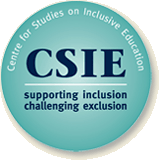
supporting inclusion, challenging exclusion
news & events
Paving the way to better outcomes for our children
20 March 2025

This is an open invitation to Bristol parents of children with labels of SEND. CSIE is offering a free workshop to explore strategies for parental wellbeing and advocating for disabled children's rights in education.
"Paving the way to better outcomes for our children" is a 2-hour workshop co-facilitated by Mental Health and Wellbeing Trainer Marianne Carter and CSIE's director Dr Artemi Sakellariadis. It will take place in a range of locations across Bristol, between March and June 2025.
This workshop aims to empower parents to advocate for their children's rights in education, by offering practical knowledge and tools to:
- support parental wellbeing & resilience
- ensure that children's needs are well met in school
The workshop will cover:
- Understanding mental health and wellbeing
- Maximising wellbeing and minimising stress in our daily lives
- Exploring different ways of understanding disability
- Understanding and protecting children's rights in education
- Support and resources
This workshop is available to book on the following dates and locations:
-
Avonmouth: 7 April and 9 June
Barton Hill: 31 March and 19 May
Brislington: 12 May and 2 June
Fishponds: 2 April and 16 June
Knowle: 31 March and 19 May
Lockleaze: 21 May and 16 June
Southmead: 7 April and 9 June
St Paul's: 12 May and 2 June
The workshop is free to attend on all the above dates and locations, thanks to a grant from the National Lottery Community Fund to whom we remain grateful.

Free conference on inclusion
11 December 2024
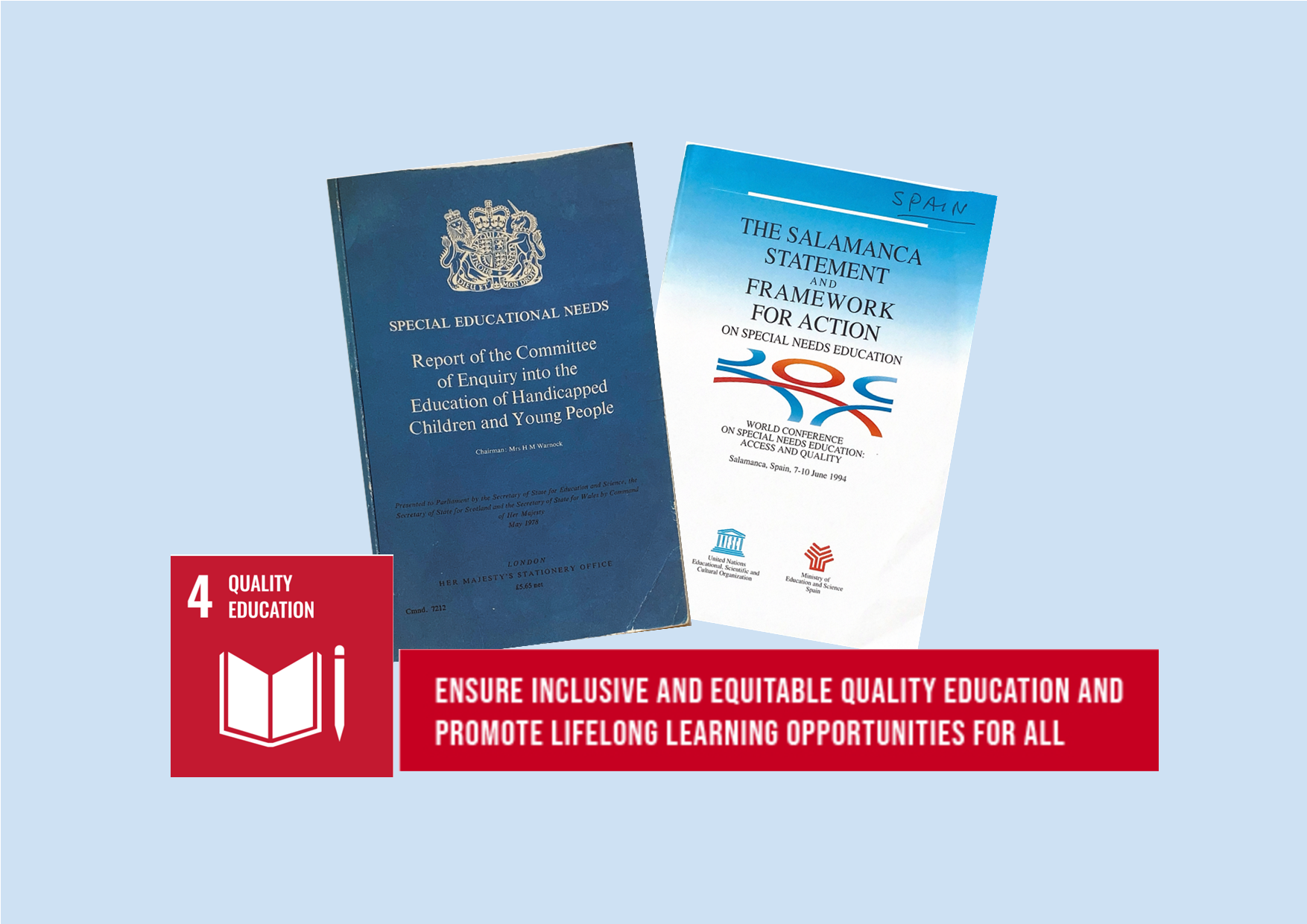
As our work to create the CSIE archive draws to a close, we are delighted to announce that we will hold a public event in Bristol on 17 January.
This will be a belated 40th birthday celebration for CSIE, as well as an opportunity to explore the development of inclusive education and CSIE's role in it.
The event will be of interest to teachers, senior leaders, governors, parents, local authority officers, students, lecturers, researchers, and anyone else with an interest in inclusive education.
It will take place at the University of Bristol's Humanities Gallery, 7 Woodland Road, Bristol BS8 1TB, 10:30 am - 3:30 pm on Friday 17 January 2025.
This event is free to attend, thanks to a grant from the National Lottery Heritage Fund to whom we remain grateful. Information on the event's Programme and Presenters is now available. For more information and to book your place please go to https://CSIEconf2025.eventbrite.co.uk

Curriculum and Assessment Review
26 November 2024
CSIE has responded to the Department for Education's call for evidence towards the Curriculum and Assessment Review. CSIE's main response was included in the response from the collective voice of the Special Educational Consortium. In its additional submission CSIE drew particular attention to the following issues:
- Embracing the social model of disability and understanding disability as an ordinary part of human diversity are at the heart of developing a more equitable education system, which expects educators to have high aspirations for all children and young people, and which responds to the needs of all learners with equal commitment and effectiveness.
- Under the Equality Act 2010 schools have a duty to advance equality of opportunity between people who share a protected characteristic and those who do not. The current system's increasing reliance on separate "special" schools, however, means that instead of receiving the support needed to access learning in their local community, many disabled children and young people receive so-called “special” provision instead of what is offered to their peers. The Curriculum and Assessment Review can set a good example of how such equality of opportunity can be pursued.
- The Equality Act also places a duty on all schools to make Reasonable Adjustments so that disabled children and young people are not at a disadvantage. Recent evidence suggests that many schools are reluctant to welcome children with labels of SEN or disability. The Review offers a great opportunity to articulate a range of Reasonable Adjustments which can make the Curriculum, and the Assessment process, more accessible for disabled children and young people.
- Initial Teacher Education and Continued Professional Development will also need to be revised, to support a transformation of attitudes and cultures in a way which places children and young people with labels of SEND at the centre of the education system, rather than in the periphery or as an afterthought.
- The global call to develop more inclusive education remains strong (for example through the UN Convention on the Rights of the Child, the UN Convention on the Rights of Persons with Disabilities and Sustainable Development Goal #4) and the UK has been repeatedly criticised by UN Committees for its slow progress towards developing more inclusive education.
- Finally, CSIE suggested that the entire model of financing inclusive education is thoroughly reviewed, bearing in mind that: a) changing systems of financing inclusive education is a key lever for achieving more widespread inclusion; and b) countries which implement a financing model based on funding services provided, have greater success compared to countries where funding is based on some aspect of individual need (e.g. types or categories of need).
The cost of SEND as a bolt-on
13 November 2024
The Public Accounts Committee invited CSIE to submit evidence to the inquiry into support for children and young people with special educational needs. In its response CSIE drew attention to the following issues:
- Since the introduction of the Children and Families Act the education system has become less inclusive. Increasing numbers of children and young people are identified as having SEN or as being disabled, are not in mainstream schools, and are achieving poor outcomes. Parents are frustrated at the lack of provision to meet their children’s needs. And there is growing concern that the financial impact of this system is becoming unsustainable
- The lack of national commitment to inclusive education has left inclusion as a moral choice for school leaders. The consequence is that too many children and young people are not accessing the education that they need, do not feel welcome in school, and outcomes for them are poor.
- The capacity of schools to respond to children with a range of SEN and disabilities continues to be significantly affected by the availability of specialist local education, health and care services. In recent years, there has been significant erosion of local specialist services such as educational psychologists, speech and language therapists, physiotherapists, autism outreach, teachers of the deaf and other sensory specialist teachers.
- This review by the Public Accounts Committee represents an opportunity to review the architecture of our education system as a whole, rather than revisit the detail of the SEN system. In order to ensure inclusive and equitable quality education for all, as Sustainable Goal no. 4 invites every country to do, planning for SEND issues needs to be built in, not bolted on. This is a welcome opportunity to build capacity in schools and strengthen inclusion, with careful consideration of key issues such as curriculum & assessment, teacher education, workforce planning, the disability duties in the Equality Act 2010, and funding (and in particular considering recent research suggesting that countries which implement a financing model based on funding services provided, have greater success compared to countries where funding is based on some aspect of individual need, e.g. types or categories of need).
- Finally, in its response CSIE expressed concern that many of the approaches put forward to date focus on driving down demand, rather than managing the drivers of that demand. In effect, they are designed to address high costs, and not the poor outcomes and parental dissatisfaction that are driving the high costs. There are no quick fixes, only long-term solutions. The clear articulation of a core set of values should frame the range of reforms that are required. Without clarity on values, any developments to address the long-standing problems of the system are likely to exacerbate, rather gradually resolve, these problems.
Spotlight on CSIE's history
23 October 2024
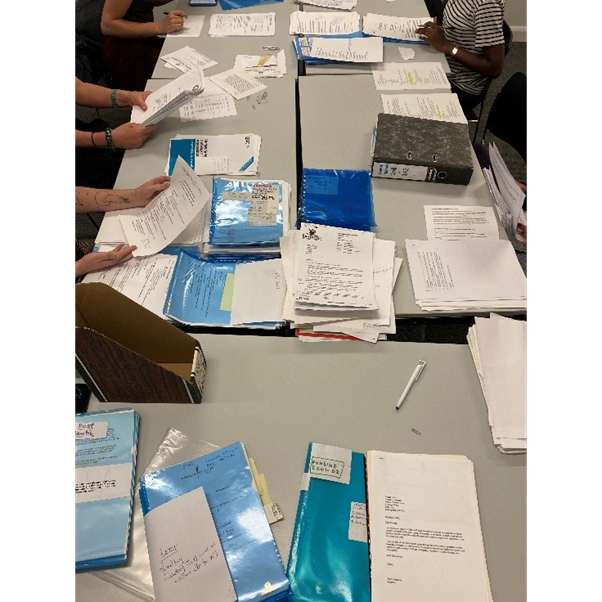
The CSIE archive has been taking shape through the collaborative work of CSIE staff, a local historian, a consultant archivist, our project co-ordinator and a small team of volunteer archivists.
Ongoing work to create the CSIE archive has been taking place at the University of Bristol, to whom we remain grateful for the hospitality.
Sorting through 42 years of history has been a fascinating process, and we are regularly surprised and excited at the richness of the material coming to light: documents from the creation of CSIE's Inclusion Charter and the Index for Inclusion, from the drafting of Article 24 (Education) of the UN Convention on the Rights of Persons with Disabilities, alongside unique artefacts notable to historians of graphic design and web development.
We are now looking to recruit a film-maker to work with us on the production of an engaging short documentary about the work and heritage of CSIE and its story as part of the wider movement towards more inclusive education. For more information and to express an interest please write to us at admin@csie.org.uk.
We remain grateful to the National Lottery Heritage Fund and to National Lottery players for making this project possible.

Another National Lottery grant for CSIE!
10 July 2024

We are delighted to announce that we have received almost 20,000 in National Lottery funding, which will enable us to start a new project working with parents in Bristol.
The Bristol SEND community support project is expected to run from September 2024 until July 2025. The project aims to help families support their children s development as effectively as possible, while also improving their own mental health.
The new funding from the National Lottery Community Fund, which distributes money raised by National Lottery players for good causes, will enable us to work with small groups of parents in eight locations across Bristol.
The National Lottery Community Fund recently launched its strategy 'It starts with community', which will underpin its efforts to distribute at least 4 billion of National Lottery funding by 2030.
We are very excited at this opportunity to empower and support parents in Bristol, and offer our most heartfelt thanks to the National Lottery Community Fund and to National Lottery players for making this possible.
Happy Birthday CSIE!
28 June 2024

On this day CSIE celebrates 42 years of remarkable achievements!
Founded in 1982 as the Centre for Studies on Integration in Education, CSIE took on its current name in the 1990s. The Centre has continued to evolve, has expanded its remit to address equality in education holistically, and has remained at the forefront of developments in inclusive education.
Within the past year alone, CSIE has:
- Won the public vote in Tesco stores in south Bristol and was awarded 1,500 towards disability awareness workshops for pupils
- Delivered Equality, Diversity & Inclusion (EDI) training in Solihull attracting excellent feedback, eg Extremely wise delivery
- Delivered bespoke training for staff and over 1,000 students at Westgate school in Slough
- Embarked on the process of archiving CSIE s rich history, thanks to a grant from the National Lottery Heritage Fund
- Received a prestigious grant which will be announced next week
- Continued to be represented at the steering group of the Special Educational Consortium
- Invited to take part in new European project to support inclusion in Early Years and primary schools
- Presented at The Future of SEND national conference in Manchester.
- Presented at The Special Educational Needs and Disability (SEND) Conference 2024 (online event)
- Presented at local event in Milton Keynes
- Presented at the Policymaker s Forum at the Zero Project Conference in Vienna
- Presented at The development of Education in the Czech Republic and in Europe conference in Most, Czech Republic
We remain committed to the vision that all children are safe, included and learning in their local school, and hope to continue getting closer to this vision in the days, months and years to come. We wish to thank all our supporters, and all those who continue to request our resources and our services and constantly remind us how much our work is valued we would not be here without you!
Happy Birthday CSIE, we all wish that you keep going from strength to strength and continue to be at the cutting edge of developing inclusive education!
The CSIE archive is taking shape
21 June 2024
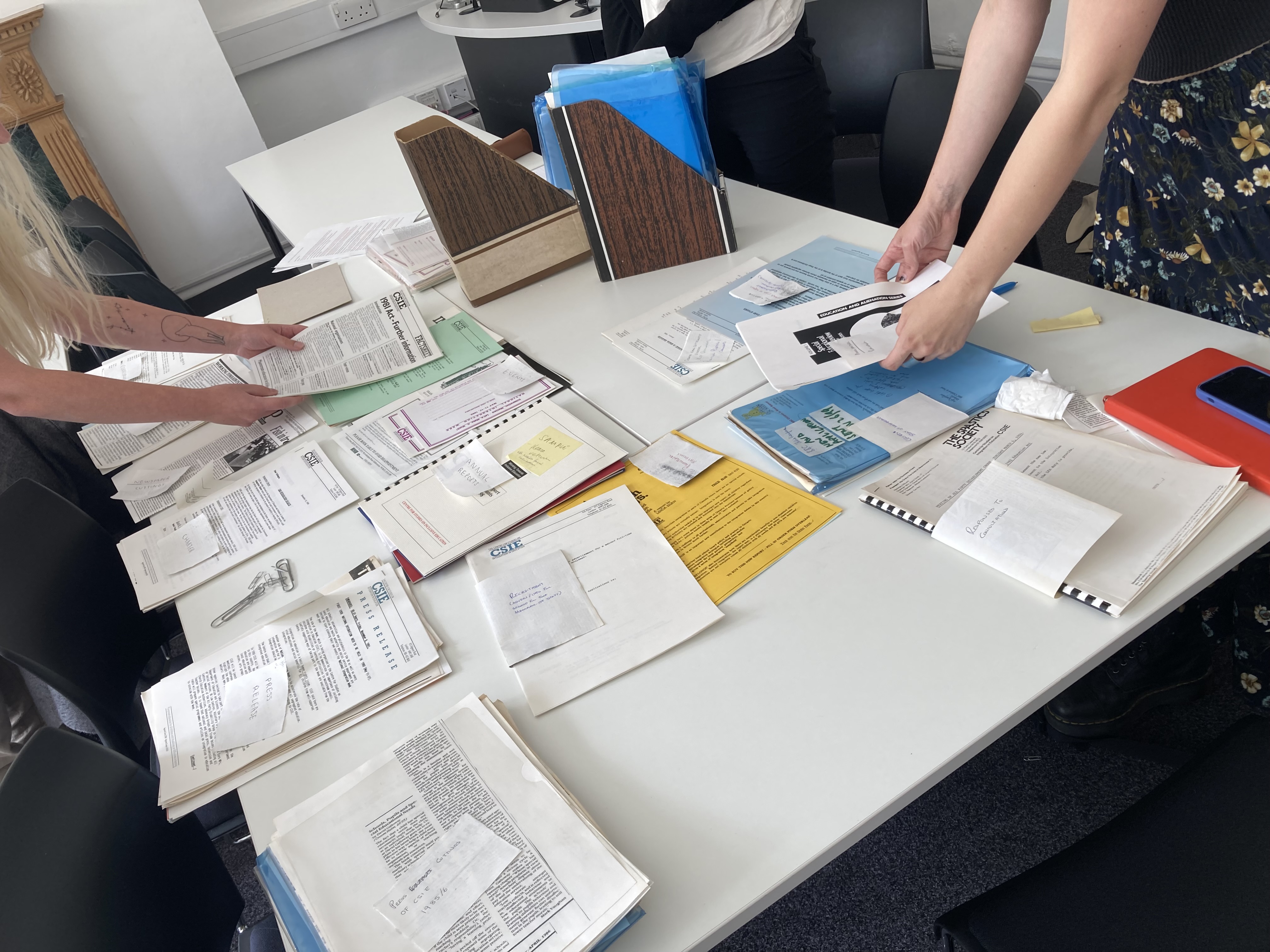
Our wonderful project co-ordinator and team of volunteers, all history students at the University of Bristol, have been working hard alongside our Consultant Archivist and CSIE staff. Ongoing work to create the CSIE archive has been taking place at the University of Bristol, to whom we remain grateful for the hospitality.
Sorting through 42 years of history has been a fascinating process, and we are often surprised and excited at the richness of the material coming to light.
As the work progresses, we are delighted that the Centre for Disability Studies at the University of Leeds has expressed an interest in hosting the archive.
Seeing the CSIE archive take shape is fascinating and exciting in equal measure! We remain grateful to the National Lottery Heritage Fund and to National Lottery players for making this possible!
Bespoke support for school
31 May 2024
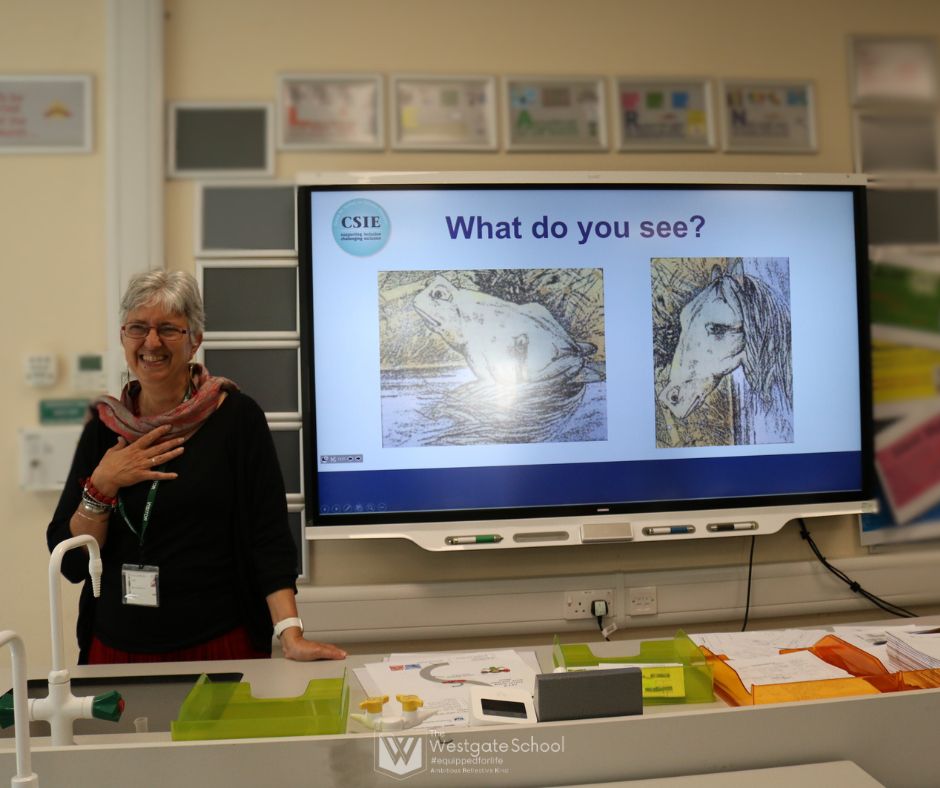
We were delighted to be invited by Westgate School in Slough to support their work on developing a more inclusive school.
Earlier this month we led a training event for all staff, which focused on reviewing the learning environment and exploring practical ways of making the school as inclusive as possible for everyone.
The workshop was framed around the 9 protected characteristics of the Equality Act 2010 and stressed the importance, and the school s legal obligation, to ensure students learn about all 9 of these characteristics and understand how essential it is that every aspect of a person s identity is respected.
Last week we led workshops for over 1,000 students in years 7, 8, 9, 10 and year 12. These workshops were also framed around the 9 protected characteristics and focused on the 7 that are most relevant to students while they are at school (age, disability, sex, sexual orientation, gender identity, ethnicity and religion).
We used the power flower , a self-reflection tool created by Canadian social change educators, and invited every student to think about each of these aspects of their identity. We also asked them to reflect on how each of these aspects of their identity may give them or take away from them any sense of power or privilege.
We also spoke about how we do not get to choose who we are, though we do have a choice of how to express our identity and how to interact with others. This gave us a chance to think about how we respond to difference, and to reflect on the importance of treating everyone with respect.
As part of this conversation we also explored the impact of our behaviour on others. With the older students, we considered the relationship between bullying in school and hate crime in society (so, the realisation that treating others badly is usually called bullying in schools and has some consequences, and yet similar behaviours outside of school may be seen as unlawful discrimination, might even be classed as a hate crime, and carry far more serious consequences).
At the end of each workshop we asked students to write down their answers to three questions: what they most liked about this workshop, what they would like the school to do and what they are willing to do, to make the school a more welcoming and more inclusive place for everyone.
We were very impressed with the level of engagement from students, and with their answers to these questions. Many of them told us that they liked how the workshop made them think, and how they learnt new things. In response to what they would like the school to do, a number of students said that they would like more workshops like this. And in response to the last question, what they are willing to do, a large number of students said that they will try to be kinder to others.
We find this a very promising response and look forward to working with Westgate school again in the future, to support the development of inclusion, and help ensure that every student finds the school a welcoming place and feels a sense of belonging.
Another international honour
25 March 2024
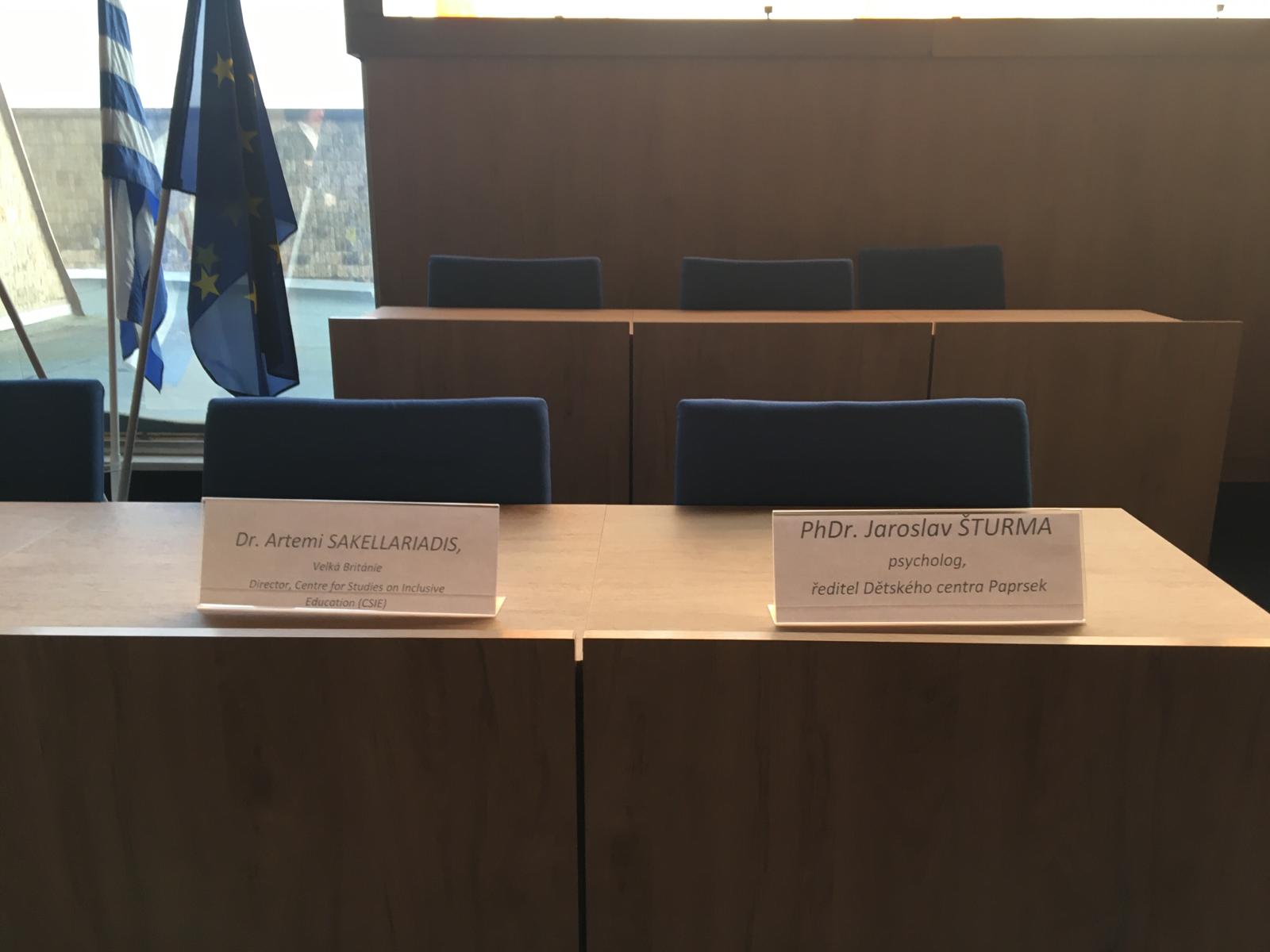
Last week CSIE was represented at a conference in Most, Czech Republic, to celebrate the 30th anniversary of the Zdenek Matejcek Primary School.
We were particularly honoured to receive this invitation, as CSIE had also been invited to contribute to a similar event in 2018, following a number of engagements in Prague.
Our director, Dr Artemi Sakellariadis, represented CSIE and spoke about inclusive education as a human rights issue.
She put forward a rationale for inclusive education, based on children s rights as these are stated in the UN Convention on the Rights of the Child, the Salamanca Statement and the UN Convention on the Rights of Persons with Disabilities. She also described the current education system in England and spoke about how CSIE is supporting the development of more inclusive education.
As with other invitations to share CSIE s voice (for example at The Future of SEND national conference in Manchester last month) we were delighted to share CSIE s perspective and feel honoured to see our work being appreciated.
CSIE response to the Department for Education s consultation on non-statutory guidance on gender questioning children
13 March 2024
CSIE has responded to the Department for Education s consultation on the draft Guidance for Schools and Colleges: Gender Questioning Children.
In its response, CSIE argued that the draft guidance is not fit for purpose. It is inconsistent with existing law and statutory guidance, there is no Easy Read version, and the consultation document itself has been presented in a form which looks more like government guidance than a consultation document. As a result, it has been widely misunderstood, even mis-represented in the media, as the long-awaited guidance that schools have to follow.
CSIE s response also stated that are significant gaps in the guidance, for example the absence of any reference to neurodiversity, learning difficulties or any other issues of SEND, and no reference to the intersection of trans and SEND identities. These issues need to be explored and understood by educators who will be called upon to support children and young people who are questioning their gender identity.
There are also significant conflicts with existing legislation and statutory guidance.
The Equality Act 2010 protects all trans people regardless of age, so there is no justification for a blanket ban in primary schools in fact that would seem unlawful.
Keeping Children Safe in Education (KCSIE) places a statutory duty on schools to safeguard and promote the well-being of all pupils, yet the proposed guidance invites staff to act in ways which undermine trans pupils' well-being particularly suggestions that staff should ignore pupil wishes and disregard their identities, for example by not adhering to requests for change of name, pronouns or use of spaces. Such practices would also be in conflict with the Equality Act s Public Sector Equality Duty, especially the duty to eliminate harassment and discrimination.
Further, KCSIE states that sharing with parents an LGBT disclosure may not be in the pupils' best interest and could constitute a breach of confidentiality. The draft guidance says that parents should be informed, which is in direct conflict with existing statutory guidance and, potentially, with young people s well-being.
Our response further suggested that if a "watchful waiting" period is interpreted as a blanket policy for no immediate action, this could prove detrimental for some young people who have waited a long time before confiding in an adult and are ready for things to begin to change.
International recognition for CSIE
26 February 2024
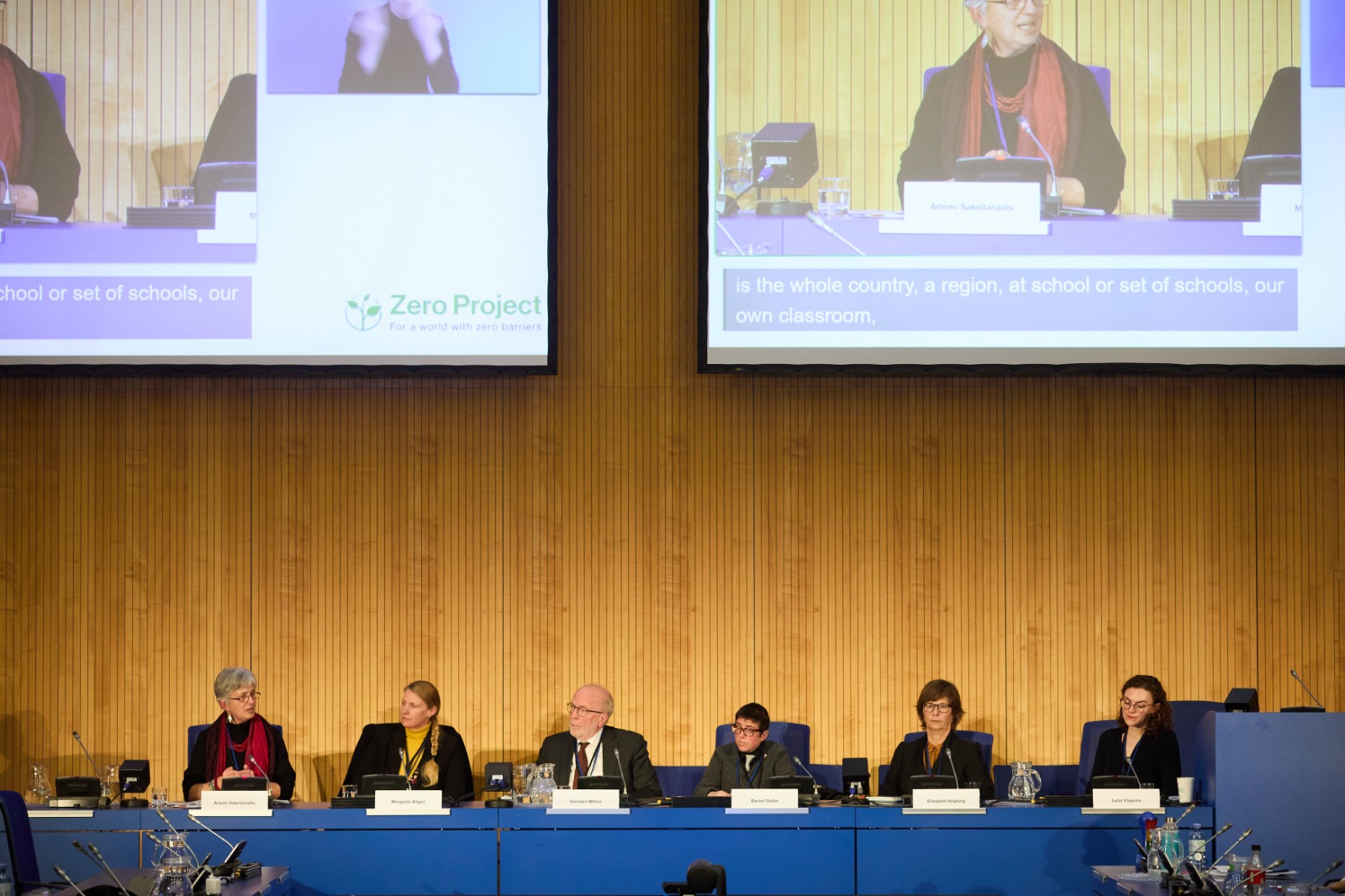
We are honoured to have been invited to contribute to the Zero Project s Policymaker Forum, during last week s Zero Project Conference 2024 in Vienna.
The Zero Project is an international organisation working for a world with zero barriers. It promotes the rights of disabled people globally, according to the principles and Articles of the UN Convention on the Rights of Persons with Disabilities.
The Policymaker Forum was an opportunity to exchange ideas and best practices, as well as serve as a platform for creating impactful change. Our director, Dr Artemi Sakellariadis, represented CSIE and spoke alongside representatives of the European Agency for Special Needs and Inclusive Education, and the Ministries of Education of Italy, Spain and Sweden.
The outcomes of the Forum will be compiled into a publication which will be distributed at significant policy events, including the Conference of State Parties.
Thanks again to the Zero Project for this invitation, we were delighted to contribute to this remarkable event!
Heritage Fund makes archiving CSIE possible
16 January 2024

We are honoured and delighted to announce that we have been awarded a grant by the National Lottery Heritage Fund to archive CSIE s rich 40+ year history!
The project will involve researching CSIE records, collating stories & publications, and producing a short documentary film on the history of inclusive education in this country, with a focus on the history and heritage of CSIE. There will also be a celebratory event at the end of the project.
We are now looking to recruit a project co-ordinator and four volunteers who will meet in Bristol for 2-3 hours each week for up to six months. For more information and to express an interest, please visit www.smartsurvey.co.uk/s/CSIE-archiving-project
We are delighted at the prospect of embarking on this project and offer our most heartfelt thanks to the National Lottery Heritage Fund and to National Lottery players for making this possible!
Note: some of the documents on this page are in PDF format. In order to view a PDF you will need Adobe Acrobat Reader
Page last updated: Tuesday 01 April 2025